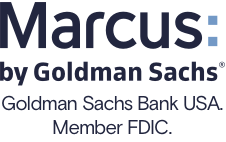4 Ways to Tell if a Bank Account Is Right for You

Many, or all, of the products featured on this page are from our advertising partners who compensate us when you take certain actions on our website or click to take an action on their website. However, this does not influence our evaluations. Our opinions are our own. Here is a list of our partners and here's how we make money.
With so many options for banking, finding the right bank account isn't as simple as selecting the one that offers the highest annual percentage yield or promises absolutely no fees.
For example, you could be doing yourself a disservice by going with the account that pays a higher interest rate if there are requirements that aren't easy to meet. Likewise, if you're depositing a small amount into an account with a high APY, you're "really talking about pennies a month, so let's be real about that," says Saundra Davis, executive director of Sage Financial Solutions, an organization focused on financial coaching in the San Francisco Bay Area. "And would the hurdles be worth it?" Or, if you choose the first fee-free account you came across, you might later find that it's not as convenient as you would have preferred.
But you can rest assured you've picked the correct account if you're having some of these positive experiences.

Member FDIC
SoFi Checking and Savings

4.60%
$0

Member FDIC
EverBank Performance℠ Savings

5.05%
$0

Member FDIC
Barclays Tiered Savings Account

4.80%
$250,000
1. Your bank account aligns with your goals or values
It would be best to consider what you want your bank account to do for you and choose one that supports your goals, says Davis.
If your goal is to safeguard your emergency fund, you might prioritize choosing an account that makes it harder to access the money. For example, you might decide to keep your emergency savings in an account that requires you to go to a branch to make withdrawals or changes. That extra step of making an in-person visit could effectively prevent you from spending money on nonemergencies.
Suppose your goal is to start socking some money away but you don't have much. In that case, you might choose an account that doesn't have an opening deposit or a minimum balance requirement and allows for easy deposits and transfers.
For consumers who want to bank with institutions that invest in their community, Chloé A. Moore, an Atlanta-based certified financial planner, encourages them to start by finding out which ones support groups or causes they align with. Figure out which credit unions or banks are affiliated with organizations you support or sponsor local events, such as charitable drives or races. You can find out how institutions use deposit accounts to help your community by checking the institution's website or speaking with a representative.

2. You're not wasting money on fees
A good bank account will charge few or no fees, and Davis says that the proper account for you should match up with your financial practices. So, for example, if you don't keep much money in your account, the one that's right for you probably won't charge a fee for not meeting a balance requirement. And if you tend to overdraw, your ideal account wouldn't punish you with fees when you reach a negative balance. Now more than ever, you can find accounts that make it easy to avoid overdraft fees.
If you use ATMs often, the right account will be part of an expansive free ATM network or offer refunds on ATM fees. And if you make multiple transfers out of your savings account, the right account won't charge you fees for excess withdrawals.
Still, Davis says a fee is not always a bad thing; in fact, choosing an account that charges a fee if you don't meet specific requirements can help you with your goals. For example, Davis knows that her checking account balance must stay above a certain amount to avoid a monthly fee. "That fee is a deterrent for spending beyond what I want to spend," Davis says. "So I'm not afraid of that fee."
3. It's easy for you to access and manage your account funds
Moore is a fan of local credit unions and regional banks because they support your local community. But sometimes, these types of institutions are not as accessible outside your area. If you travel a lot, you should make sure that your account allows free access to ATMs wherever you go so you can easily get cash if you need it, Moore says.
Checking your balance and moving money into or out of your account as you wish should be easy to do. If you prefer to do your transactions in person, bank with an institution with a branch nearby, with hours that work for your schedule. If you like managing your money online, your account should provide everything you need to do so — think easy mobile check deposit, online transfers, and bill payments. The bank's budgeting and financial planning tools should also be compatible with the apps, software and programs you use.
4. You're able to access customer service when you need it
"Customer support: That's something that I think people forget about sometimes," says Moore. Your bank account should allow you to reach customer service in the way you want. Whether that's in person, over the phone or by social media, getting help should be easy and support should be accessible at the time you might need it. Some banks offer 24/7 phone support or virtual assistance online or through an app, while others provide live support by phone, live chat or social media during traditional business hours.
If you have an issue with your account, such as fraudulent charges or overdraft fees that you want to dispute, it's important to have easy access to customer support.
Choosing the right bank account may take some self-reflection and research, but once you've found one that aligns with your values, financial goals and practical needs, you should be able to manage your money with ease.









